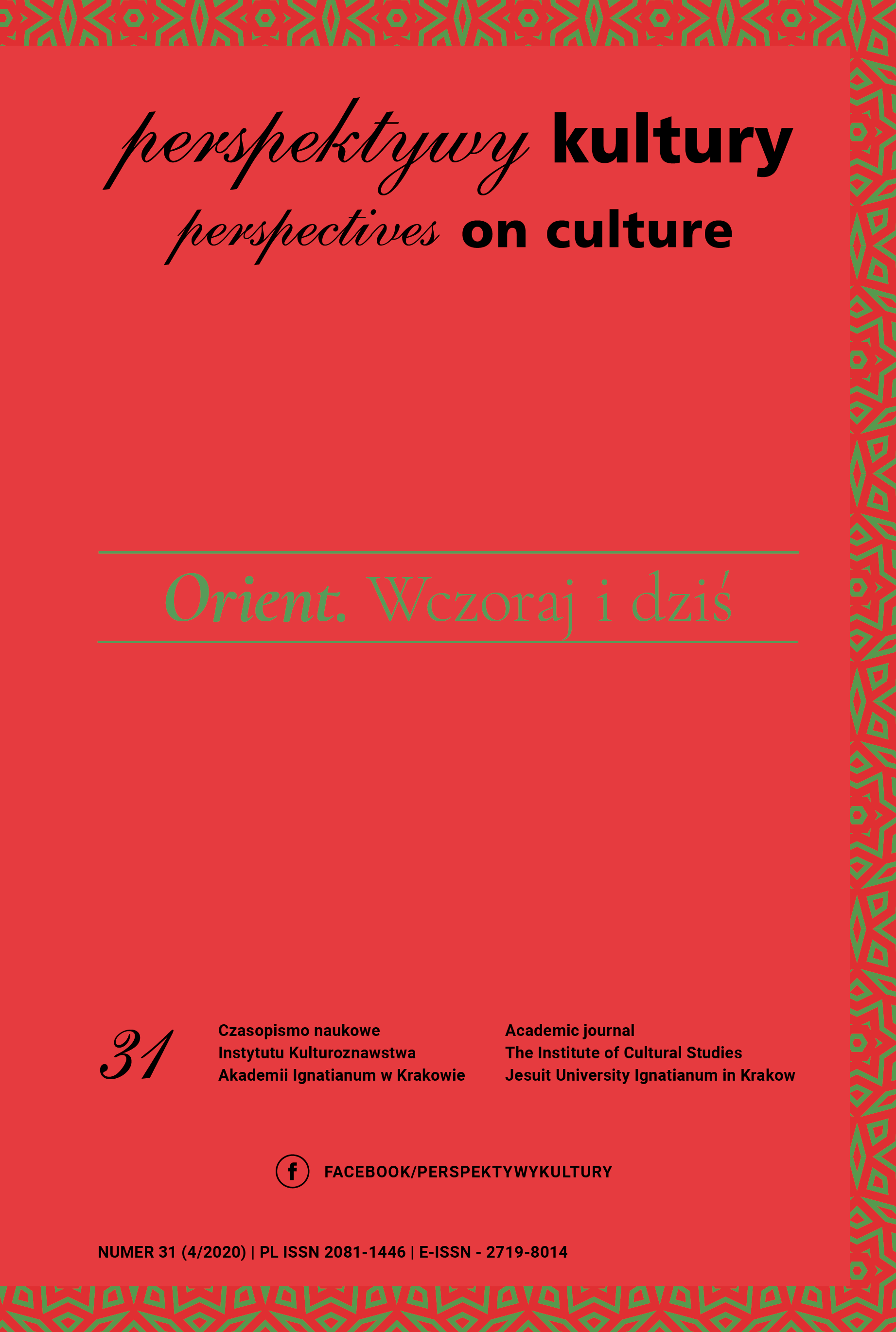Turecka Republika Cypru Północnego jako przykład państwa nieuznawanego
Abstrakt
Kwestia cypryjska pozostaje jednym z najdłużej nieuregulowanych sporów międzynarodowych. Od blisko pół wieku faktyczny podział wyspy jest jednym z czynników destabilizujących sytuację w regionie wschodniego Morza Śródziemnego. Okresowo doprowadza do napięć nie tylko pomiędzy członkami obu cypryjskich społeczności, Grekami cypryjskimi i Turkami cypryjskimi, ale także między Grecją i Turcją oraz Turcją i Unią Europejską. Celem niniejszego artykułu jest przedstawienie Tureckiej Republiki Cypru Północnego jako przykładu tak zwanego państwa nieuznawanego oraz przypisanie jej do właściwego typu państw nieuznawanych. Wybrany przypadek został przeanalizowany na podstawie atrybutów państwa nieuznawanego, sformułowanych przez czołową badaczkę tego zagadnienia Ninę Caspersen oraz wybranej typologii państw nieuznawanych.
Bibliografia
Adamczyk, A. (2002). Cypr – dzieje polityczne. Warszawa: Wydawnictwo Dialog.
Aid Programme for the Turkish Cypriot Community (2020). Retrieved from https://ec.europa.eu/info/funding-tenders/funding-opportunities/funding-programmes/overview-funding-programmes/aid-programme-turkish-cypriot-community_en (access: 17.06.2020).
Barcik, J. & Srogosz, T. (2017). Prawo międzynarodowe publiczne. Warszawa: C.H. Beck.
Caspersen, N. (2011). States Without Sovereignty: Imitating Democratic Statehood. In N. Caspersen & G. Stansfield (Eds.), Unrecognized States in the International System. Abingdon: Routledge.
Caspersen, N. (2012). Unrecognized States: The Struggle for Sovereignty in the Modern International System. Cambridge: Polity.
Caspersen, N. & Stansfield, G. (2011). Introduction: Unrecognized States in the International System. In N. Caspersen & G. Stansfield (Eds.), Unrecognized States in the International System. Abingdon: Routledge.
Cengiz, O.K. (2020). Why is Turkish Cypriot leader declared ‘enemy’ in Turkey? Al.-Monitor, 18.02.2020. Retrieved from https://www.al-monitor. com/pulse/originals/2020/02/turkey-mediterranean-turkish-cypriot-leader-declared-enemy.html (access: 24.06.2020).
Council Regulation (EC) No 389/2006 of 27 February 2006 establishing an instrument of financial support for encouraging the economic development of the Turkish Cypriot community and amending Council Regulation (EC) No 2667/2000 on the European Agency for Reconstruction (2006). Retrieved from https://eur-lex.europa.eu/legal-content/PL/TXT/ HTML/?uri=CELEX:32006R0389&from=EN (access: 18.06.2020).
Crawford, J. (2006). The Creation of States in International Law. Oxford: Oxford University Press.
Dodd, C. (2010). The History and Politics of the Cyprus Conflict. Basingstoke: Palgrave Macmillan.
Ekici, T. (2019). The Political and Economic History of North Cyprus: A Discordant Polity. Cham: Palgrave Macmillan.
Faustmann, H. (2009). The Colonial Legacy of Division. In J. Ker-Lindsay & H. Faustmann (Eds.), The Government and Politics of Cyprus. Bern: Peter Lang.
Góralczyk, W. & Sawicki, S. (2001). Prawo międzynarodowe publiczne w zarysie. Warszawa: Wydawnictwo Prawnicze LexisNexis.
Harding, L. (2020). Turkish Cypriot leader warns Cyprus is facing permanent partition, The Guardian, 6.02.2020. Retrieved from https://www.theguardian.com/world/2020/feb/06/turkish-cypriot-leader-warns-cyprus-facing-permanent-partition-mustafa-akinci (access: 24.06.2020).
Isachenko, D. (2012). The Making of Informal States: Statebuilding in Northern Cyprus and Transnistria. Basingstoke: Palgrave Macmillan.
Ker-Lindsay, J. (Ed.). (2015). Resolving Cyprus: New Approaches to Conflict Resolution. London: I.B. Tauris.
King, C. (2001). The Benefits of Ethnic War: Understanding Eurasia’s Unrecognized States. World Politics, July (53), 524–552.
Kyris, G. (2015). The Europeanisation of Contested Statehood: The EU in Northern Cyprus. Farnham: Ashgate.
Mallinson, W. (2010). Partition Through Foreign Aggression: The Case of Turkey in Cyprus. Minneapolis: University of Minnesota.
Mehmet, O. (2010). Sustainability of Microstates: The Case of North Cyprus. Salt Lake City: The University of Utah Press.
Michael, M.S. (2011). Resolving the Cyprus Conflict: Negotiating History. New York: Palgrave Macmillan.
Misztal, M. (2013). Historia Cypru. Kraków: Wydawnictwo Naukowe Uniwersytetu Pedagogicznego.
Mulaj, K. (2011). International Actions and the Making and Unmaking of Unrecognized States. In N. Caspersen and G. Stansfield (Eds.), Unrecognized States in the International System. Abingdon: Routledge.
North Cyprus Almanack. (1987). London: K. Rustem and Brother.
Osiewicz, P. (2008). Pokojowa regulacja kwestii cypryjskiej. Aspekty prawne i polityczne. Toruń: Wydawnictwo Mado.
Osiewicz, P. (2013). Konflikt cypryjski. Warszawa: Wydawnictwo Naukowe PWN.
Protocol No. 10 on Cyprus (2003). Official Journal L 236, 23/09/2003, P. 0955–0955.
Resolution 541 (1983). United Nations Security Council. Retrieved from http://unscr.com/en/resolutions/doc/541 (access: 18.06.2020).
Shaw, M. (2000). Prawo międzynarodowe. Warszawa: Książka i Wiedza.
Tamkoç, M. (1988). The Turkish Cypriot State: The Embodiment of the Right of Self-determination. London: K. Rustem and Brother.
Turkey to give $325M to help Turkish Cyprus’ virus-hit economy (2020). Daily Sabah, 26.05.2020. Retrieved from https://www.dailysabah.com/business/ economy/turkey-to-give-325m-to-help-turkish-cyprus-virus-hit-economy (access: 18.06.2020).
Vural, Y., Sonan S., & Michael, M.S. (2018). The Turkish Cypriot dilemma: between Ankara and Lefkosia. In M.S. Michael & Y. Vural (Eds.), Cyprus and the Roadmap for Peace: A Critical Interrogation of the Conflict. Cheltenham: Edward Elgar Publishing.
Copyright (c) 2020 Akademia Ignatianum w Krakowie

Utwór dostępny jest na licencji Creative Commons Uznanie autorstwa – Bez utworów zależnych 4.0 Międzynarodowe.
Autor, zgłaszając swój artykuł, wyraża zgodę na korzystanie przez Wydawnictwo Uniwersystet Ignatianum z utworu na następujących polach eksploatacji:
- utrwalania utworu w formie papierowej, a także na nośniku cyfrowym lub magnetycznym;
- zwielokrotnienia utworu dowolną techniką, bez ograniczenia ilości wydań i liczby egzemplarzy;
- rozpowszechniania utworu i jego zwielokrotnionych egzemplarzy na jakimkolwiek nośniku, w tym wprowadzenia do obrotu, sprzedaży, użyczenia, najmu;
- wprowadzenia utworu do pamięci komputera;
- rozpowszechniania utworu w sieciach informatycznych, w tym w sieci Internet;
- publicznego wykonania, wystawienia, wyświetlenia, odtworzenia oraz nadawania i reemitowania, a także publicznego udostępniania utworu w taki sposób, aby każdy mógł mieć do niego dostęp w miejscu i czasie przez siebie wybranym.
Wydawca zobowiązuje się szanować osobiste prawa autorskie do utworu.





